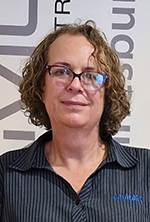

At the most recent SAIMC Secunda technical evening, Jenine Jansen van Vuuren, sales account manager from Comtest Technologies, gave a presentation on the calibration of process instruments.
In today’s quickly changing world, accuracy in measurement, and conformity to standards, are essential for engineering and technological efficiency and safety. Jenine stressed that the key to upholding those standards is calibration, a procedure that guarantees measuring devices yield correct data. In addition to guaranteeing adherence to industry standards, it also significantly improves the calibre of products in many industries.
She emphasised that calibration is essential to getting accurate readings, particularly in industries like manufacturing and medical equipment, where accuracy is crucial. Frequent calibration ensures that any errors are promptly detected and fixed, helping to maintain the accuracy of devices. For sectors like pharmaceuticals and aerospace, that need consistency, and where even little measurement errors can have serious repercussions, this procedure is essential.
Many firms must navigate a complicated web of international standards and laws in order to create a strong quality management system. Businesses like the healthcare and automobile manufacturing sectors are frequently inspected to make sure their goods adhere to international safety and performance standards. Strict calibration intervals, for example, might help avoid problems like equipment failure or inaccurate measurements that could jeopardise the safety and quality of products.
AI-powered predictive maintenance has changed the game in recent years for businesses trying to maximise equipment lifespan and reduce downtime. Businesses can reduce the need for frequent physical inspections by employing AI tools to track the performance of calibrated devices, and predict possible faults before they happen. This method contributes to overall process efficiency by saving time and guaranteeing that equipment is constantly operating at its best.
For businesses engaged in worldwide trade, following international standards is also essential. For instance, fulfilling ISO calibration standards guarantees product acceptance across markets, preventing conflicts, and promoting more harmonious trading ties. A competitive advantage in the worldwide market can be obtained by demonstrating compliance with these standards through a well-documented calibration process.
According to Jenine, enterprises can meet legal requirements and attain a better degree of operational excellence by comprehending the crucial role that calibration and quality management systems play. The future of engineering will be shaped by retaining accuracy in all processes as technology develops.
The Secunda SAIMC management committee would like to thank Jenine for her time and presentation, and Proconics for hosting the monthly technology evenings.
| Tel: | +27 11 312 2445 |
| Email: | [email protected] |
| www: | www.saimc.co.za |
| Articles: | More information and articles about SAIMC |
© Technews Publishing (Pty) Ltd | All Rights Reserved